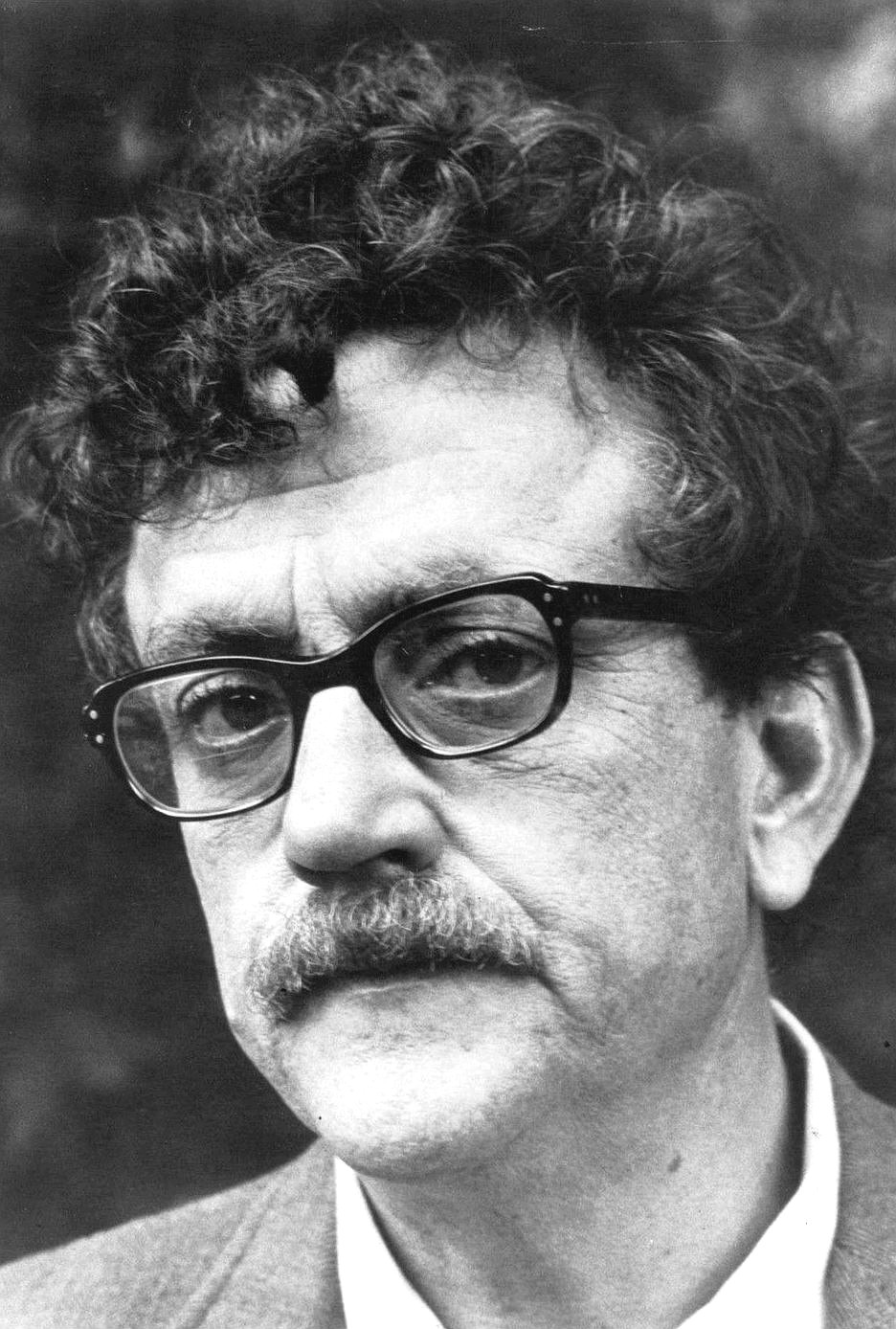Kurt Vonnegut Quotes
Source: Player Piano (1952), Chapter 29 (p. 271)
Source: The Sirens of Titan (1959), Chapter 1 “Between Timid and Timbuktu” (p. 41)
Galápagos (1985)
“We don't piss in your ashtrays,
So please don't throw cigarettes in our urinals.”
Eliot Rosewater's favorite poem, from the wall of the men's room at the Log Cabin Inn.
God Bless You, Mr. Rosewater (1965)
Source: The Sirens of Titan (1959), Chapter 2 “Cheers in the Wirehouse” (p. 52)
Source: Player Piano (1952), Chapter 9 (p. 92)
“We could have saved the earth, but we were too damned cheap.”
If This Isn't Nice, What Is?: Advice for the Young (2013)
“Like most science-fiction writers, Trout knew almost nothing about science.”
Breakfast of Champions (1973)
Chapter 124 http://books.google.com/books?id=61W3aGvTVgIC&q=%22Beware+of+the+man+who+works+hard+to+learn+something+learns+it+and+finds+himself+no+wiser+than+before%22&pg=PA281#v=onepage: Frank's Ant Farm
Cat's Cradle (1963)
“Let us devote to unselfishness the frenzy we once gave gold and underpants.”
Breakfast of Champions (1973)
Source: The Sirens of Titan (1959), Chapter 1 “Between Timid and Timbuktu” (p. 25)
Public conversation with Lee Stringer, in Like Shaking Hands With God (1999)
Various interviews
Deadeye Dick (1982)
“His plan? To pass out weapons to slaves, so they could overthrow their masters. Suicide.”
God Bless You, Dr. Kevorkian (1999)
Source: The Sirens of Titan (1959), Chapter 1 “Between Timid and Timbuktu” (p. 7)
page 19
Breakfast of Champions (1973)
Source: The Sirens of Titan (1959), Chapter 11 “We Hate Malachi Constant Because...” (p. 259)
"In a Manner that Must Shame God Himself"
Wampeters, Foma & Granfalloons (1974)
Mother Night (1961)
Opening line of novel.
God Bless You, Mr. Rosewater (1965)
Breakfast of Champions (1973)
“We are healthy only to the extent that our ideas are humane.”
Kilgore Trout's epitaph
Unsourced paraphrase or variant: We are human only to the extent that our ideas remain humane.
Breakfast of Champions (1973)
Source: The Sirens of Titan (1959), Chapter 10 “An Age of Miracles” (p. 216)
Epilogue “Reunion with Stony” (p. 313)
The Sirens of Titan (1959)
Source: Player Piano (1952), Chapter 18 (p. 169)
“When you're dead you're dead.”
Introduction (1966)
Mother Night (1961)
“Old Norwegian Proverb: Swedes have short dicks but long memories.”
A Man Without a Country (2005)
Slaughterhouse-Five (1969)
“Ladies and gentlemen of the class of ’97: Wear sunscreen.”
Opening words to a commencement address supposedly given by Vonnegut at M.I.T., but actually based on Mary Schmich's June 1, 1997 column for the Chicago Tribune
Misattributed
In A Man Without a Country (2005) p. 80–81 Vonnegut makes a very similar statement:
How do humanists feel about Jesus? I say of Jesus, as all humanists do. "If what he said is good, and so much of it is absolutely beautiful, what does it matter if he was God or not?"
But if Christ hadn't delivered the Sermon on the Mount, with its message of mercy and pity, I wouldn't want to be a human being.
I'd just as soon be a rattlesnake.
God Bless You, Dr. Kevorkian (1999)
“In the nightmare of a warring world, it takes peculiar skills to get along.”
Story: "The commandant's desk" - p.193
Armageddon in Retrospect (2008)
"At Clowes Hall, Indianapolis, April 27 2007" - p.22 [Page numbers per the 2008 Jonathan Cape hardback edition.]
(From a speech written by Kurt Vonnegut before his death but delivered posthumously on his behalf by son Mark Vonnegut.)
Armageddon in Retrospect (2008)
“You must all take instructions from me!”
the conscience shrieks, in effect, to all the other mental processes. The other processes try it for a while, note that the conscience is unappeased, that it continues to shriek, and they note, too, that the outside world has not been even microscopically improved by the unselfish acts the conscience has demanded. They rebel at last. They pitch the tyrannous conscience down an oubliette, weld shut the manhole cover of that dark dungeon. They can hear the conscience no more. In the sweet silence, the mental processes look about for a new leader, and the leader most prompt to appear whenever the conscience is stilled, Enlightened Self-interest, does appear. Enlightened Self-interest gives them a flag, which they adore on sight. It is essentially the black and white Jolly Roger, with these words written beneath the skull and crossbones, 'The hell with you, Jack, I've got mine!"
God Bless You, Mr. Rosewater (1965)
